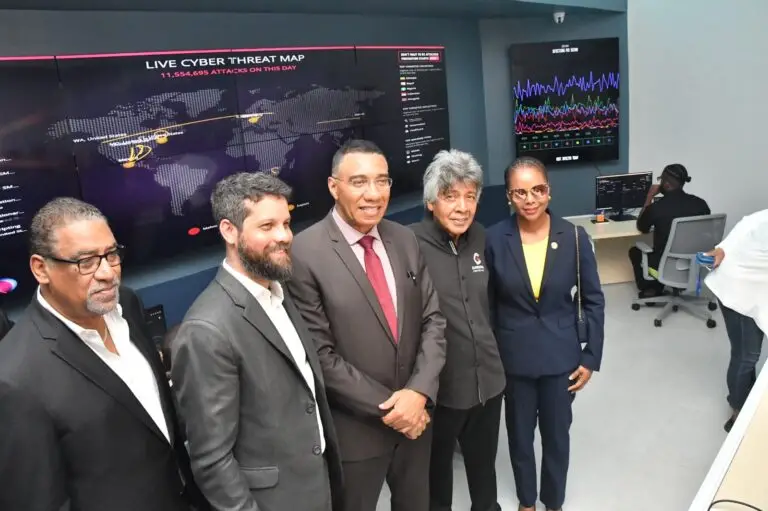Prime Minister Andrew Holness has issued a sharp warning to Jamaica’s growing class of digitally savvy criminals: the era of anonymity is over.
Speaking at the unveiling of the Guardsman Group’s new Cyber Intelligence Security Operations Centre (SOC), Holness made it clear that Jamaica’s cybersecurity apparatus has undergone a silent but powerful transformation — and cyber-offenders are squarely in its sights.
“No longer are we relying on outdated tools and guesswork,” Holness said. “We’ve fortified our digital perimeter with cutting-edge intelligence, enhanced forensics, and 24/7 monitoring capabilities. The cybercrime landscape has shifted — and so must those who think they can outsmart the system.”
The prime minister commended Guardsman’s investment in round-the-clock cyber vigilance, framing it as a critical pillar in national security. “Cybersecurity is no longer an afterthought. It’s now at the centre of our law enforcement strategy, both in public and private domains,” he said.
In stark contrast to the outdated stereotype of criminals as disenfranchised youth from impoverished communities, Holness drew attention to a more insidious profile: educated individuals exploiting technology to orchestrate sophisticated digital crimes.
“These aren’t just idle hands at play,” Holness warned. “We’re talking about university graduates, IT professionals — people leveraging their skills not to build, but to breach. They are architects of cyber disruption.”
Yet, Holness emphasized that technological advancement now heavily tilts the scale toward law enforcement.
“Our surveillance capabilities are expanding. Every keystroke leaves a trace. The odds of being caught are climbing, and we’re aiming for near-certainty. If you commit a digital crime, expect that knock at the door.”
He concluded with a cold reassurance to would-be offenders:
“We’re not only watching. We know who you are — and how to find you.”

